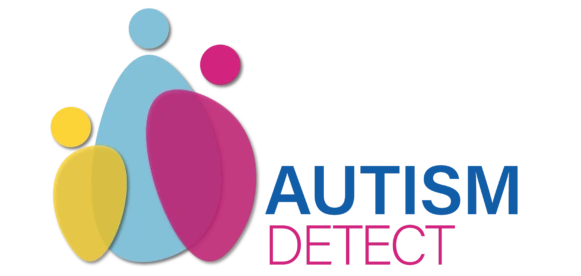Autism Spectrum Disorder (ASD) is a lifelong condition that affects individuals differently across various stages of life. While much focus is often placed on childhood interventions, it is equally important to understand and address the unique challenges and strengths that autistic adults experience. This article explores the journey of autism and adulthood, highlighting key areas such as employment, relationships, independent living, and mental health.
Understanding Autism in Adulthood
What is Autism?
Autism Spectrum Disorder (ASD) is a developmental condition characterised by differences in communication, behaviour, and social interactions. Each autistic individual is unique, with their own set of strengths and challenges that persist into adulthood.
Transition to Adulthood
The transition to adulthood can be a significant milestone for autistic individuals and their families. Planning and support during this period are crucial to ensure a smooth transition from adolescence to adult life.
Employment and Career Development
Employment Challenges
Autistic adults often face unique challenges in the workplace, including:
- Communication Barriers: Social interactions and communication difficulties can impact job performance and workplace relationships.
- Sensory Sensitivities: Sensory issues may make specific work environments uncomfortable or overwhelming.
- Understanding Social Norms: Navigating workplace culture and social norms can be challenging.
Strategies for Success
With the proper support and accommodations, autistic adults can thrive in their careers. Strategies include:
- Job Matching: Finding jobs that align with an individual’s strengths and interests.
- Workplace Accommodations: Implementing sensory-friendly workspaces and precise communication methods.
- Job Coaching: Providing on-the-job support to help with training and integration.
Relationships and Social Connections
Building Relationships
Building and maintaining relationships can be challenging for autistic adults, but supportive strategies can help:
- Social Skills Training: Developing skills for effective communication and social interactions.
- Support Groups: Joining groups where individuals can connect with others who understand their experiences.
- Online Communities: Participating in online forums and social media groups for autistic individuals.
Family and Friendships
Family and friendships play a vital role in the lives of autistic adults:
- Family Support: Ongoing support from family members can provide stability and encouragement.
- Understanding and Acceptance: Educating friends and family about autism to foster understanding and acceptance.
Independent Living
Challenges of Independent Living
Living independently can present several challenges for autistic adults:
- Daily Living Skills: Managing daily tasks such as cooking, cleaning, and budgeting.
- Decision Making: Making informed decisions and managing time effectively.
- Navigating Public Services: Understanding and accessing public services and supports.
Supportive Strategies
Promoting independence involves providing the proper support:
- Life Skills Training: Teaching essential skills for independent living.
- Supported Living Options: Exploring supported living arrangements that offer varying levels of assistance.
- Community Resources: Utilising community resources and support services for autistic adults.
Mental Health and Well-being
Mental Health Challenges
Autistic adults may experience mental health challenges, including anxiety, depression, and stress:
- Anxiety and Depression: High prevalence of anxiety and depression among autistic adults.
- Social Isolation: Feelings of loneliness and isolation due to difficulties in social interactions.
Promoting Well-being
Supporting the mental health of autistic adults involves:
- Access to Mental Health Services: Ensuring access to appropriate mental health care and counselling.
- Mindfulness and Relaxation Techniques: Teaching mindfulness and relaxation strategies to manage stress.
- Physical Health: Encouraging regular physical activity and healthy lifestyle choices.
Celebrating Strengths and Talents
Unique Strengths
Autistic adults possess unique strengths and talents that should be recognised and celebrated:
- Attention to Detail: Exceptional focus and attention to detail in various tasks.
- Honesty and Loyalty: Strong sense of honesty and loyalty in relationships and work.
- Creative Thinking: Innovative and creative problem-solving abilities.
Promoting Inclusion and Acceptance
Creating an inclusive society involves recognising and valuing the contributions of autistic adults:
- Advocacy and Awareness: Promoting awareness and understanding of autism in the broader community.
- Inclusive Policies: Supporting policies and practices that promote inclusion and equal opportunities.
- Celebrating Diversity: Embracing neurodiversity and celebrating the diverse talents of autistic individuals.
Further Reading & Actionable Resources for Autistic Adults
For practical insights on supporting autistic teens and adults through crucial life transitions, career planning, and employment, explore these expert guides:
- Autism Parenting Summit 2025: Transitioning to Adulthood
Discover evidence-based strategies, lived experience stories, and UK-specific guidance for employment, independent living, and self-advocacy in our Autism Parenting Summit 2025 coverage. - Best Jobs for Autistic Adults in the UK
Find a strengths-based, inclusive approach to career options, workplace adjustments, and support programmes in our Best Jobs for People with Autism in the UK guide.
Conclusion
Autism and adulthood bring unique challenges and opportunities. By understanding and addressing the specific needs of autistic adults, we can create a supportive environment that promotes their well-being and celebrates their strengths. With the proper support, autistic adults can lead fulfilling and independent lives, contributing positively to society.
